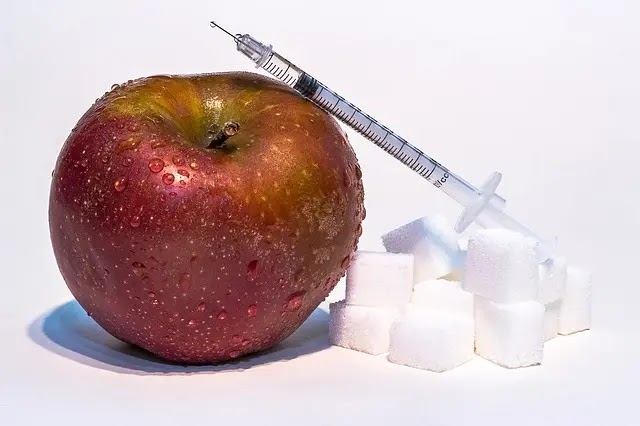Weight gain is often associated with insulin, but weight control is possible.
If you need insulin therapy, here's how to reduce - or avoid - weight gain.
Insulin and Weight Gain: Shedding Extra Weight
Weight gain is a common side effect of people who take insulin - a hormone that regulates the cells' absorption of sugar (glucose).
However, controlling your weight is not only possible, it is also an important part of your overall diabetes management plan.
The relationship between insulin and weight gain
When you take insulin, glucose can enter your cells, so blood glucose levels drop. This is the desired therapeutic goal.
But if you eat more calories than you need to maintain a healthy body weight - depending on your level of activity - the cells will get more glucose than they need.
Fat is produced when glucose is not utilised by the body's cells.
Avoid gaining weight while you are taking insulin
Your keenness to eat healthy foods and be physically active most days of the week can help you prevent unwanted weight gain.
The following tips can help you maintain weight loss:
Calculate calories:
Weight gain can be avoided by eating and consuming less calories.
Fill your fridge and food cupboard with fruits, vegetables, and whole grains.
Create a plan for each meal that includes a healthy mix of starches, fruits, vegetables, proteins and fats.
Reduce meal sizes, skip over-the-counter meals, and drink water instead of higher-calorie drinks.
Talk to a doctor, nurse, or dietitian about meal planning strategies and resources.
Make sure to eat major meals on time:
Don't try to cut calories by skipping meals.
When you skip a meal, your body becomes less energy efficient and you are more likely to make dietary choices at the next meal because you are so hungry.
Skipping meals can also lead to low blood sugar levels if your insulin dose is not adjusted.
Do physical activities:
Physical activity burns calories.
A reasonable goal for most adults - set by the Department of Health and Human Services - is to get at
least 150 minutes a week of moderately intense aerobic activity - such as walking, biking, water aerobics, dancing, or gardening - plus muscle-strengthening exercises twice a week. at least.
Talk to your doctor about activities and exercise that are appropriate for your condition.
Ask your doctor about other diabetes medications.
Metformin (Fortamite, Glucophage) is one of the diabetes drugs that helps stabilise blood glucose levels.
Glucophage, others), Exenatide (Beta), Liraglutide (Vicutza) and Pramlintide (Cimlin) - can promote weight loss and enable you to reduce your insulin dose.
Ask your doctor whether these or other medications would be appropriate as part of your diabetes treatment plan.
Take insulin only as directed: Do not skip or reduce insulin doses to avoid weight gain.
Although you may lose weight if you take less insulin than prescribed, the risks are still serious.
Without getting enough insulin, your blood sugar level will rise - and your risk of diabetes complications will also increase.


Comments
Post a Comment